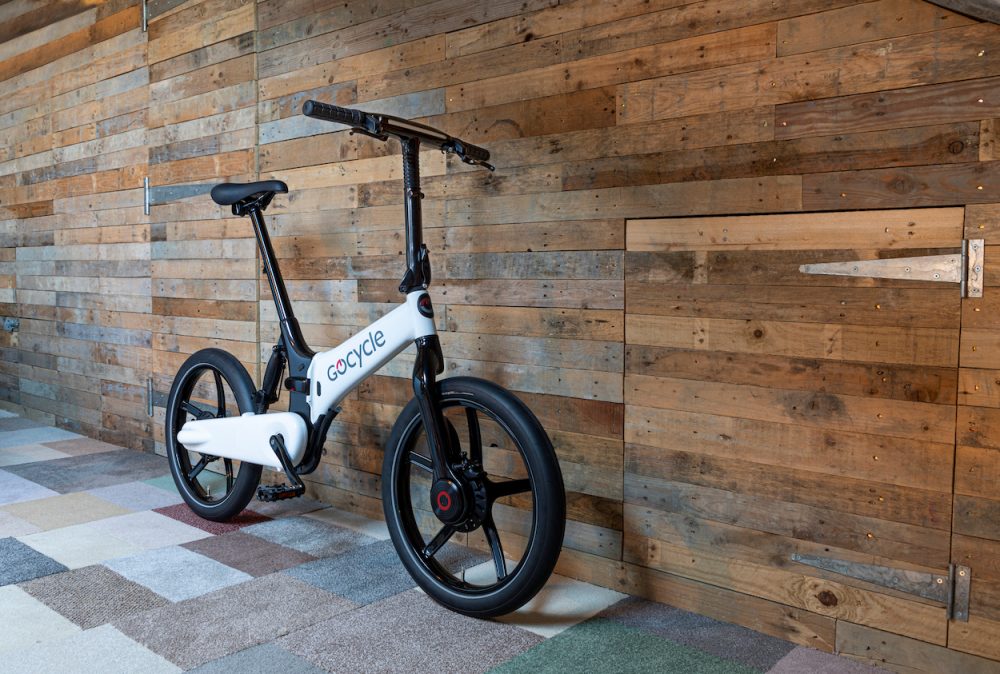
Electric bikes. They’re two-wheeled electric vehicles that outsell electric cars handily and are a much more affordable way for many commuters to begin replacing gas-driven miles with a cleaner alternative.
So why aren’t they a bigger part of the discussion on sustainable transportation alternatives?
For those that haven’t had the pleasure of learning about these fun electric two-wheelers, e-bikes are basically normal pedal bikes with the addition of a battery and an electric assist motor.
Sometimes it’s a low-power motor designed to help cyclists climb a hill easier, reduce the effort required to get to work, or lengthen a fitness ride for longer outings.
Other times, it’s a higher power motor complete with hand throttle like a motorbike that can actually replace the need to pedal altogether and function more like an electric moped.
And then there are all sorts of specialty electric bicycles, like folding models for taking on the subway or cargo models for carrying groceries or kids.
Basically, it’s a vastly diverse industry with something for everyone. The common thread is that they all share electric motors and they all can be used to replace car miles – especially gas-powered car miles.

These aren’t some new-fangled idea or an obscure hobby for those in the know. Electric bicycles are selling like hotcakes – and they have been for years.
Even in the US where the public has been slower to catch on to e-bikes, new electric bicycle companies have reached over a hundred thousand sales in just two years.
The more established electric bicycle companies in the US are raking in hundreds of millions of dollars in funding as investors awaken to the huge surge in e-bike adoption.
In Europe, electric bicycles are even more common and are actually projected to outsell cars by the middle of this decade. Not just outsell electric cars. All cars.
And Asia is already years ahead of Europe in terms of e-bike adoption, where it is common for families to forgo a car altogether in favor of an electric bike.

But as effective as e-bikes are when it comes to transportation alternatives, they still seem to get looked over in favor of pricey electric cars – especially when it comes to public policy.
That’s not to say electric cars aren’t an important part of the equation.
Americans commute by car far more than any other vehicle. Replacing gas-powered cars with electric cars is thus an important part of reducing emissions that lead directly to climate change.
But not everyone has tens of thousands of dollars for a new electric car.
Even with tax credits, buying a new car isn’t always the most sustainable solution. Electric bicycles, on the other hand, can often be purchased new for well under $2,000, and many good options even exist for.
Even the fancy ones from high-end manufacturers usually cost between $3,500-$6,000 (or as my commenters often like to put it, “the price of a used Nissan Leaf”).

When it comes to legislation supporting investment in sustainable transportation, affordable e-bikes frequently get passed over in favor of electric cars and flashier projects.
When they do get funding, they’re often looked at in terms of specialty alternatives. Even the New York Times relegated electric bikes to “niche items” recently. As the CEO of North America’s leading electric bicycle company Rad Power Bikes Mike Radenbaugh pointed out on Twitter, there’s nothing niche about the best-selling electric vehicles.
He explained that his company’s electric bikes alone have replaced 338,000,000 miles. And consider that they only represent an estimated quarter of the US e-bike market.
Times may be changing though. This year sees the best chance yet that e-bike tax credit legislation will pass in Congress to give Americans a credit of up to $1,500 on a new e-bike purchase.
And electric bicycle sales continue to skyrocket in the US, even without any financial incentives from the government.
For the many commuters out there eyeing an electric vehicle to replace their gas-driven miles but struggling with the high cost of electric cars, the answer might be surprising. And smaller. And have just two wheels.
While not everyone can replace a car entirely with an electric bicycle, many local trips don’t require a several thousand pound vehicle. Running errands or meeting friends at the local coffee shop might just be quicker, easier, and far more energy-efficient if performed on an electric bicycle.
For those that can replace a car with an e-bike, or perhaps replace a second car to become a one car and one e-bike household, the financial benefits can be staggering. One San Francisco woman found that she saved $50,000 over seven years by swapping her car for an e-bike.
So while electric cars are an important part of the equation, lighter personal electric vehicles like e-bikes, e-scooters, and even e-motorcycles are just as important. And maybe even more so.
Subscribe to Electrek on YouTube for exclusive videos and subscribe to the podcast.
Author: Micah Toll
Source: Electrek



